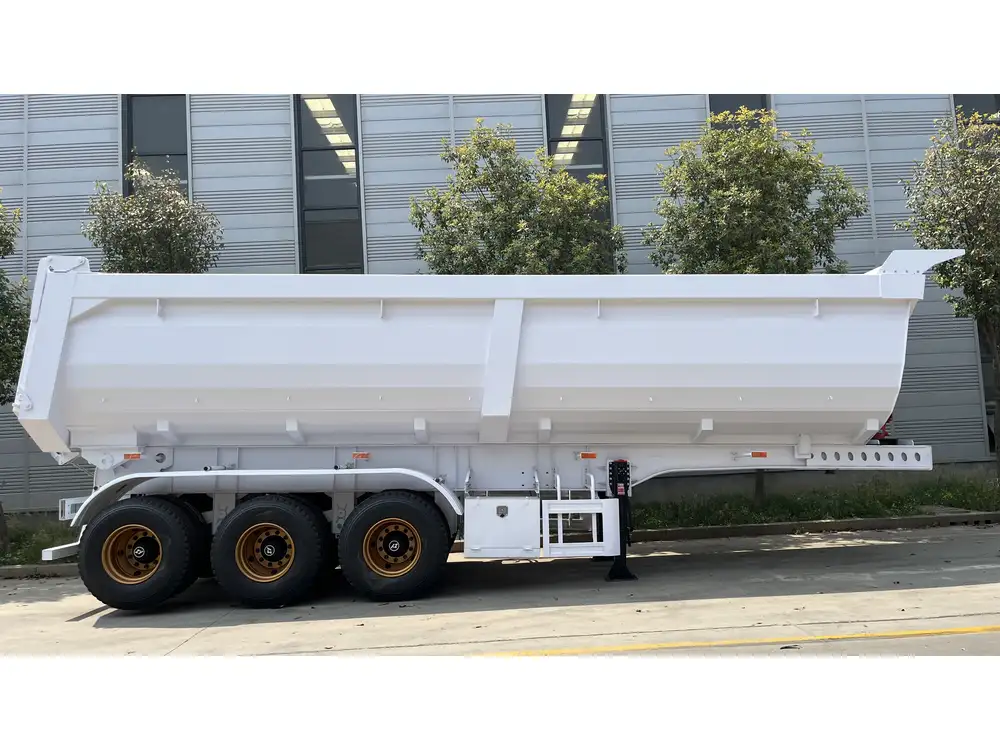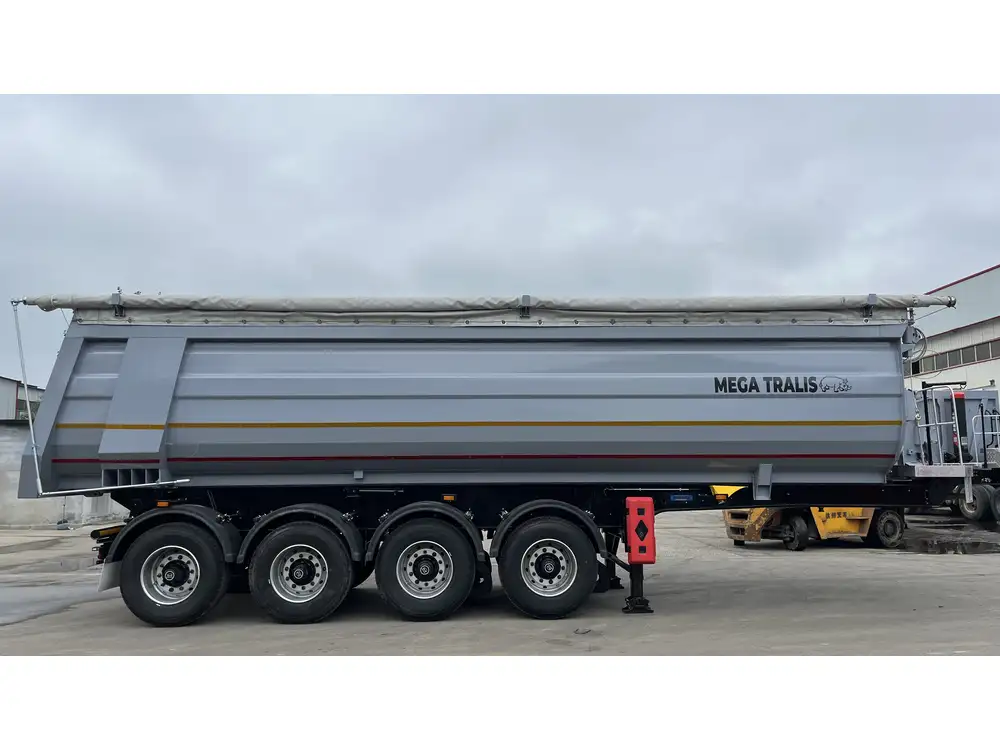Registering a heavy semi-trailer in Florida can appear daunting at first. However, with the right knowledge and following a step-by-step approach, the process can be smooth and straightforward. This article provides a comprehensive overview of the registration process, key considerations, and valuable tips to ensure compliance with Florida regulations.
Understanding the Importance of Semi-Trailer Registration
Before diving into the specifics of registration, it’s essential to grasp the significance of officially registering your heavy semi-trailer. Proper registration ensures that:
- Legal Compliance: Operating unregistered vehicles can lead to hefty fines and penalties.
- Insurance Qualifications: Many insurance providers require proof of registration.
- Road Safety: Registered vehicles contribute to traffic safety awareness and accountability.
What Is a Heavy Semi-Trailer?
In Florida, a heavy semi-trailer is defined as a non-motorized vehicle designed for transporting cargo, typically weighing over 5,000 pounds. Understanding this classification is crucial when proceeding with registration to align with state regulations.

Step-by-Step Registration Process for Heavy Semi-Trailers in Florida
Step 1: Gather Required Documentation
Before initiating the registration process, ensure you have the following documents ready:
| Document | Description |
|---|---|
| Proof of Ownership | Bill of Sale or Title |
| Vehicle Identification Number (VIN) | Unique identifier for the trailer |
| Manufacturer’s Certificate of Origin (MCO) | Required for newly manufactured trailers |
| Insurance Documentation | Proof of liability insurance coverage |
| ID Verification | A government-issued ID (such as a driver’s license) |
Step 2: Complete the Application for Title and Registration (Form HSMV 82040)
The next step involves filling out the Application for Title and Registration, which can be completed online or in-person at your local tax collector’s office. Make sure to provide accurate information regarding:
- Trailer specifications (make, model, year, VIN)
- Ownership details (full name and address)
- Insurance provider details

Step 3: Pay the Applicable Fees
Florida’s fees for registering a heavy semi-trailer typically vary based on weight and registration duration:
| Weight Category | Registration Fee | Title Fee |
|---|---|---|
| 5,000 lbs or less | $14.50 | $75.25 |
| 5,001 lbs to 7,999 lbs | $37.55 | $75.25 |
| 8,000 lbs or more | $46.75 | $75.25 |
Note: Additional fees may apply for specialty plates, service fees, and local taxes. It’s advisable to check with the local tax collector for comprehensive fee structures.
Step 4: Submit Your Application
After completing the application and preparing your payment, submit your paperwork at the nearest Florida Department of Highway Safety and Motor Vehicles (DHSMV) office or tax collector’s location. Confirm that all documents are accurate and complete to avoid delays.
Step 5: Receive Your Registration and Title
Upon approval of your application, you will receive:
- Official Registration Certificate: This document should be kept in your vehicle at all times.
- License Plate: If applicable, you’ll also receive a specially assigned license plate (if you opted for one).
- Title: If you applied for a new title, it might take several weeks to arrive in the mail.

Key Considerations for Heavy Semi-Trailer Registration in Florida
1. Annual Renewal Requirements
In Florida, semi-trailer registrations require annual renewal. The process typically mirrors initial registration, necessitating the resubmission of basic documentation and payment of applicable fees.
2. Weight-Based Registration
Florida bases many registration fees on the weight of the trailer. Ensure to accurately assess and report the weight during registration to avoid unexpected fees or penalties.

3. Unique State Regulations
Florida laws may have unique requirements, especially for interstate operations. If your semi-trailer will travel out of state, it is vital to understand the regulations in other states that may impact registration.
4. Insurance Coverage
Having valid insurance is non-negotiable. Ensure to get comprehensive coverage for your semi-trailer. Reach out to local or online providers to explore various insurance options tailored for heavy vehicles.
| Insurance Type | Coverage Description |
|---|---|
| Liability Insurance | Covers bodily injury and property damage |
| Comprehensive Insurance | Protects against theft, vandalism, and natural disasters |
| Cargo Insurance | Covers the goods transported by the trailer |
Frequently Asked Questions About Heavy Semi-Trailer Registration in Florida

Q1: Can I register my trailer online?
Yes, Florida allows certain registrations to be processed online. However, for initial registrations and certain documentation requirements, visiting a local DHSMV office may be necessary.
Q2: What should I do if I lost my title?
If your trailer title is lost, you need to apply for a duplicate title using Form HSMV 82101 and pay the associated fee.
Q3: Do I need to have my trailer inspected?
Generally, inspections are not required for registration unless there are specific issues noted by law enforcement or if the trailer is being registered for the first time.

Q4: How do I know if my registration is valid?
You can verify your registration status by visiting the Florida DHSMV website and entering the necessary details, or by contacting your local tax collector’s office directly.
Tips for a Smooth Registration Experience
Check for Updates: Stay informed about any changes in registration procedures or requirements by regularly checking the Florida DHSMV website.
Utilize Checklists: Prepare a checklist of required documents to prevent last-minute scrambling before your appointment.
Align with a Reliable Insurance Provider: Building a relationship with reputable insurance companies ensures you receive the best coverage options available.
Consult a Professional: If the process feels overwhelming, consider seeking help from professionals or legal advisors specializing in vehicle registration.
Engage with Local Communities: Joining forums or groups focused on Florida trucking and logistics can provide insights and tips from fellow owners about registration and maintenance.
Final Thoughts
Navigating through the intricacies of registering a heavy semi-trailer in Florida may seem intricate. However, with the right preparation and understanding of the process, it can be completed efficiently. This guide has aimed to provide a thorough blueprint for successfully registering your trailer, leading to peace of mind and adherence to legal standards.
Considering financial and logistical commitments in the trucking industry, ensuring that your semi-trailer is registered and compliant with state guidelines is a foundational step toward operational success. By following the steps outlined above and leveraging the tips shared, you can focus on what matters most—your business and the freight you transport.



